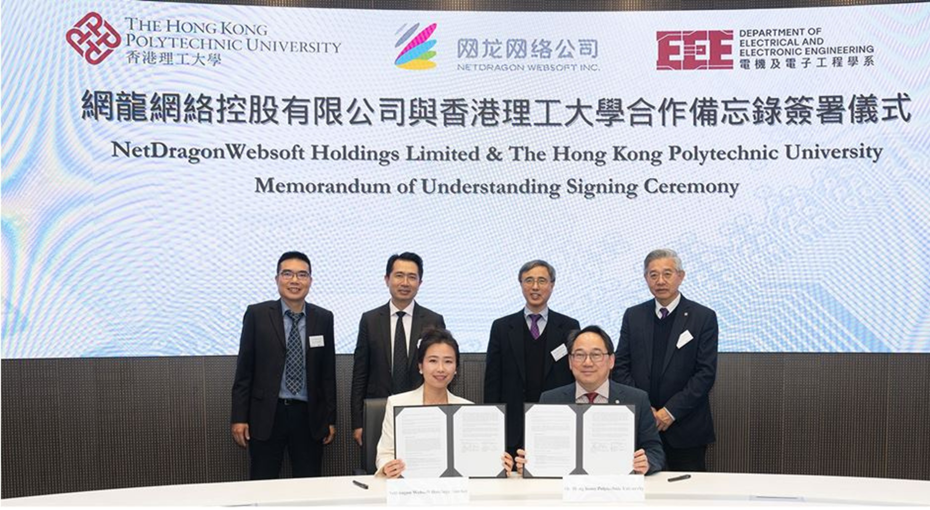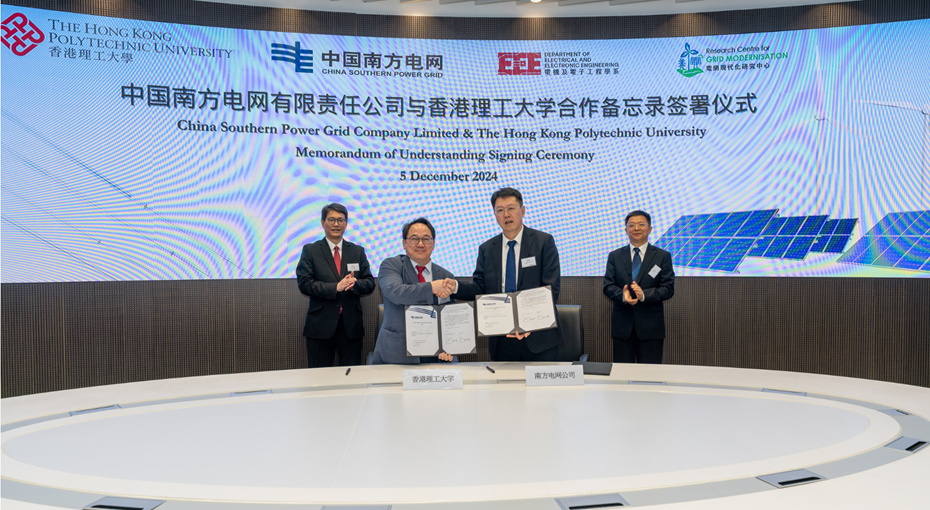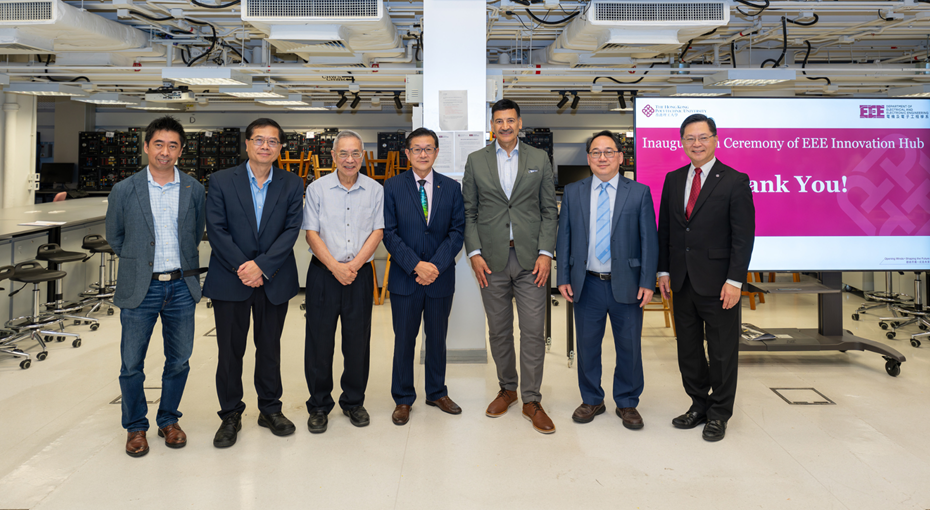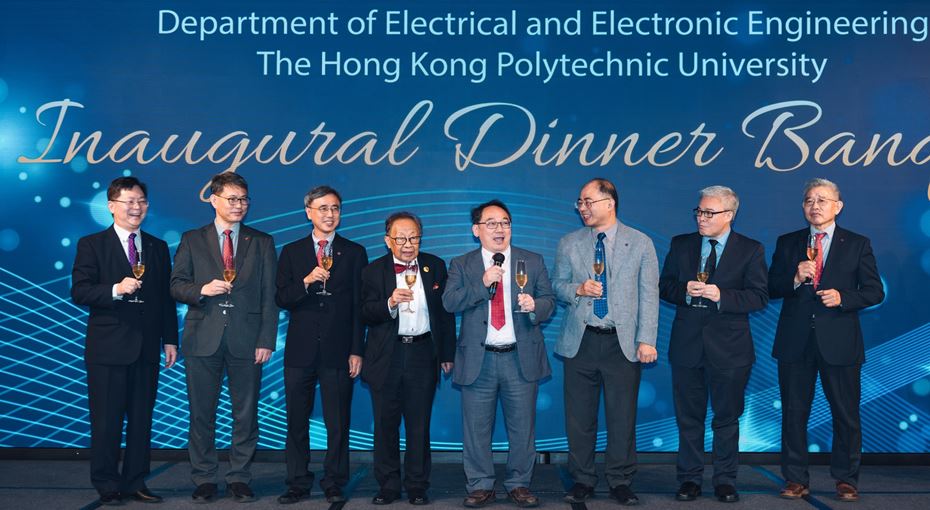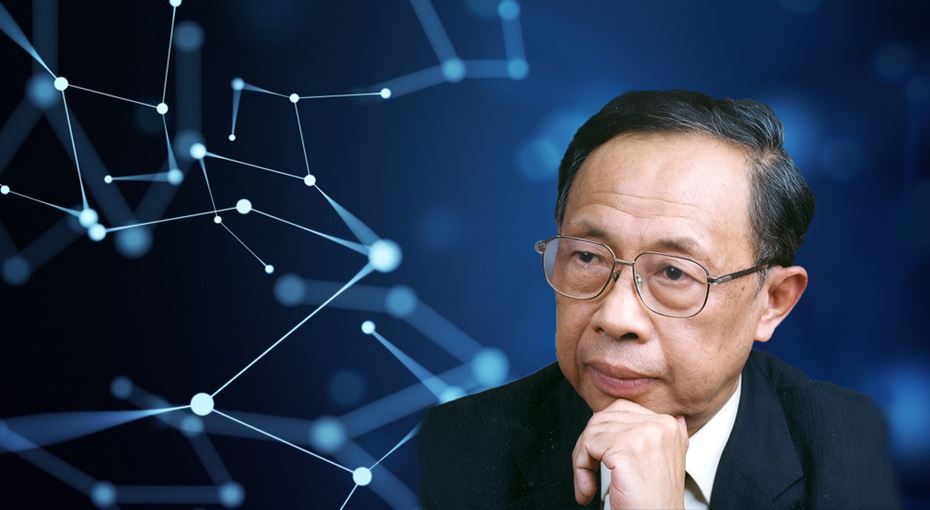What's New
What's New
The enhanced three-level Outstanding PolyU Alumni Award (OPAA) that was introduced last year has achieved remarkable success. The Department of Electrical and Electronic Engineering (EEE) is delighted to announce that the new round of the departmental OPAA 2025 is now open for nominations until 31 July 2025 (Thursday), and we encourage all eligible individuals to participate. The departmental OPAA aims to publicly recognize outstanding gradua
20 Jun 2025
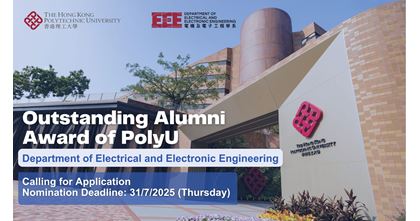
The Department is thrilled to announce that our PhD student, Wang Peng, has received the Best Student Paper Award at the 29th International Conference on Optical Fiber Sensors (OFS-29) (https://ofs29.org), held in Porto, Portugal from 25–30 May 2025. OFS is the world’s leading conference in photonic sensing and fiber optic technologies, bringing together top researchers and industry experts since 1983. Wang’s paper, “Ultra-miniature optical f
1 Jun 2025
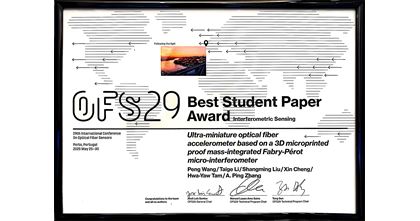
Congratulations to the EEE Dragon Boat Team on winning the first runner-up in the Men’s Gold Cup, the highest division, at the Stanley International Dragon Boat Championships on 31 May 2025! The team also won the championship in the Men’s Silver Cup at the Stanley Dragon Boat Warm Up Races on 3 May 2025. Comprised of EEE alumni and students, the team has dedicated months of effort to train for the Tuen Ng Festival dragon boat races. Our staff, a
31 May 2025

Congratulations to our students on winning three awards at the 11th Hong Kong University Student Innovation and Entrepreneurship Competition on 31 May 2025! Organized by the Hong Kong New Generation Cultural Association, the competition aims to promote innovation and entrepreneurship in higher education institutions. Three teams of EEE students won the prizes in the Innovation Category under the “Energy, Environmental and Chemical Engineering” a
31 May 2025
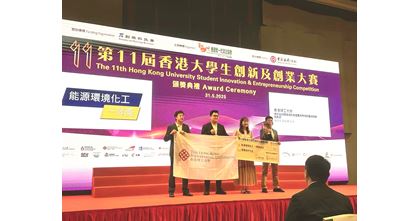
We extend our heartfelt congratulations to Professor Xu Wanghuai for being selected as one of the six awardees of the Young Innovative Researcher Award (YIRA) by the University! The YIRA is a highly regarded university-level award that honors young faculty members who have demonstrated originality, contributed to technological advancement, and propelled transformational innovation into solutions addressing global challenges through their research
27 May 2025
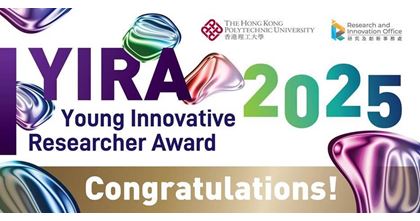
Prof. Tam Haw Yaw has been awarded the Thailand Award for the Best International Invention & Innovation and the Gold Medal with Congratulations of the Jury at the 50th International Exhibition of Inventions Geneva (Geneva Inventions Expo). These accolades recognize his ground-breaking project, “Hearing Hope: A Smart Sensor for Enhanced Safety and Precision in Hearing Restoration Procedures.” Prof. Tam Hwa Yaw (left) and Dr Cui Jingxian (right) a
28 Apr 2025
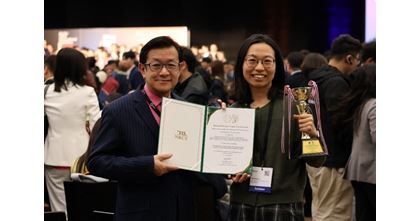
Officiated by Professor C.Y. Chung, Head of the Department, the EEE Dragon Boat Team launched their training season with a traditional dragon boat eye-dotting ceremony at the Tseung Kwan O Waterfront on 23 March 2025. Comprising EEE alumni, staff, and students, the team has participated in numerous local and international dragon boat races for over a decade. These fulfilling activities not only boost the members' physical fitness and cooperati
23 Mar 2025

Congratulations to Prof. Shuowen Zhang on winning the 2024 IEEE Communications Society Asia-Pacific Outstanding Young Researcher Award! Prof. Zhang is recognized for her contributions to intelligent reflecting surface aided communications and integrated sensing and communications. This award honors young researchers aged under 35 who have been active in IEEE Communications Society publications and conference activities over the last three years
15 Mar 2025

The Department is thrilled to announce that our PhD student, Wang Peng, has received the Best Student Paper Award at the 29th International Conference on Optical Fiber Sensors (OFS-29) (https://ofs29.org), held in Porto, Portugal from 25–30 May 2025. OFS is the world’s leading conference in photonic sensing and fiber optic technologies, bringing together top researchers and industry experts since 1983. Wang’s paper, “Ultra-miniature optical f
1 Jun 2025

Congratulations to the EEE Dragon Boat Team on winning the first runner-up in the Men’s Gold Cup, the highest division, at the Stanley International Dragon Boat Championships on 31 May 2025! The team also won the championship in the Men’s Silver Cup at the Stanley Dragon Boat Warm Up Races on 3 May 2025. Comprised of EEE alumni and students, the team has dedicated months of effort to train for the Tuen Ng Festival dragon boat races. Our staff, a
31 May 2025

Congratulations to our students on winning three awards at the 11th Hong Kong University Student Innovation and Entrepreneurship Competition on 31 May 2025! Organized by the Hong Kong New Generation Cultural Association, the competition aims to promote innovation and entrepreneurship in higher education institutions. Three teams of EEE students won the prizes in the Innovation Category under the “Energy, Environmental and Chemical Engineering” a
31 May 2025

We extend our heartfelt congratulations to Professor Xu Wanghuai for being selected as one of the six awardees of the Young Innovative Researcher Award (YIRA) by the University! The YIRA is a highly regarded university-level award that honors young faculty members who have demonstrated originality, contributed to technological advancement, and propelled transformational innovation into solutions addressing global challenges through their research
27 May 2025

Prof. Tam Haw Yaw has been awarded the Thailand Award for the Best International Invention & Innovation and the Gold Medal with Congratulations of the Jury at the 50th International Exhibition of Inventions Geneva (Geneva Inventions Expo). These accolades recognize his ground-breaking project, “Hearing Hope: A Smart Sensor for Enhanced Safety and Precision in Hearing Restoration Procedures.” Prof. Tam Hwa Yaw (left) and Dr Cui Jingxian (right) a
28 Apr 2025

Officiated by Professor C.Y. Chung, Head of the Department, the EEE Dragon Boat Team launched their training season with a traditional dragon boat eye-dotting ceremony at the Tseung Kwan O Waterfront on 23 March 2025. Comprising EEE alumni, staff, and students, the team has participated in numerous local and international dragon boat races for over a decade. These fulfilling activities not only boost the members' physical fitness and cooperati
23 Mar 2025

Congratulations to Prof. Shuowen Zhang on winning the 2024 IEEE Communications Society Asia-Pacific Outstanding Young Researcher Award! Prof. Zhang is recognized for her contributions to intelligent reflecting surface aided communications and integrated sensing and communications. This award honors young researchers aged under 35 who have been active in IEEE Communications Society publications and conference activities over the last three years
15 Mar 2025

The enhanced three-level Outstanding PolyU Alumni Award (OPAA) that was introduced last year has achieved remarkable success. The Department of Electrical and Electronic Engineering (EEE) is delighted to announce that the new round of the departmental OPAA 2025 is now open for nominations until 31 July 2025 (Thursday), and we encourage all eligible individuals to participate. The departmental OPAA aims to publicly recognize outstanding gradua
20 Jun 2025

57 th
Quacquarelli Symonds (QS) World University Rankings 2025 PolyU – Ranking Highlights
65 th
Quacquarelli Symonds (QS) World University Rankings 2025
5 th
2024-2025 Best Global Universities Rankings by the U.S. News and World Report
41 th
Times Higher Education World University Rankings 2025






